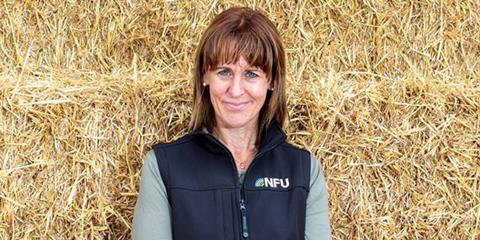The government has announced a series of animal welfare policy measures in its ‘Action Plan for Animal Welfare’, many of which directly affect British farmers.

Responding to the plan, NFU president, Minette Batters said: “British farmers are proud to have some of the highest standards of animal welfare in the world and it is clear the government wants to be a global leader in this area. However, we want to see the same energy and leadership that is being proposed for protecting endangered species and wildlife crime to be applied to our asks in equivalence in trade.
“I have serious concerns about the government’s intention to raise the bar at home, without any certainty that the same standards will be applied to imports. There are still many practices allowed in countries we are currently negotiating with that are banned here, on welfare grounds.
"“I have serious concerns about the government’s intention to raise the bar at home, without any certainty that the same standards will be applied to imports."
“For example, it is not uncommon to see journey times for live animals in Australia exceed 24 hours without access to feed or water. In comparison, the government has recently consulted on reducing domestic journey times in the UK to eight hours.
“It’s also important to recognise that two sectors the government has singled out, poultry and pigs, have some of the highest engagement levels in farm assurances schemes, meaning they are managed and audited against robust animal welfare standards.
“Just over a quarter of eggs sold in retail last year were from enriched cages. If this production system were to be banned in this country then there is every prospect that the demand would simply be fulfilled by importing eggs from countries with lower standards.
“If the government is to raise the welfare bar here, it must do so for food imports. It would simply be hypocritical to do otherwise. We cannot have a situation where British farmers adhere to some of the highest standards in the world, only to be undercut by imports that barely meet the lowest rung on the ladder.
“We are pleased to see the commitment that ministers should be held accountable to Parliament when making policy decisions around animal sentience. This will provide a high level of scrutiny and we look forward to engaging with Defra on this important issue.”
NSA reaction
Commenting on the outline of the Queens Speech, NSA chief executive, Phil Stocker said:“There were both welcome and unwelcome intentions outlined within the Queens Speech and as is often the case the devil will be in the detail as these Bills get developed. We are enthusiastic about being a global leader in health and welfare (and environmental) standards, but these have to be based on evidence and practicality, and it will not advance welfare of animals if these standards aren’t a requirement for food imports to the UK. There is absolutely nothing to be gained from pushing things out of sight and high standard farming has to be economically viable at an industry scale.
“NSA is still highly concerned over the proposals outlined in the Government’s recent consultation on journey times and welfare in transport and we do not feel that an outright ban on live exports for slaughter is necessary. We believe there are more creative and intelligent ways to ensure good welfare outcomes and that there are cases where moving animals short distances across the English Channel makes sense”.
Stocker added: The Animal Health and Welfare Pathway as part of the Future Farming Programmes, planned for launch in 2022, gives the opportunity for something we all want to see, improved animal health and well-being, improved productivity and efficient resource use, and less reliance on financial support integrated with environmental gains and enhancements. The aspiration is good, but there will be challenges achieving it and clarity is still sought on exactly what support will look like for health and welfare enhancements that are valued by the public. Many of the UK’s sheep farmers are already farming in a regenerative farming manner, and are doing a lot to work in harmony with nature, producing sustainable and high quality products that needs to be rewarded accordingly.”
This story was originally published on a previous version of the Meat Management website and so there may be some missing images and formatting issues.















